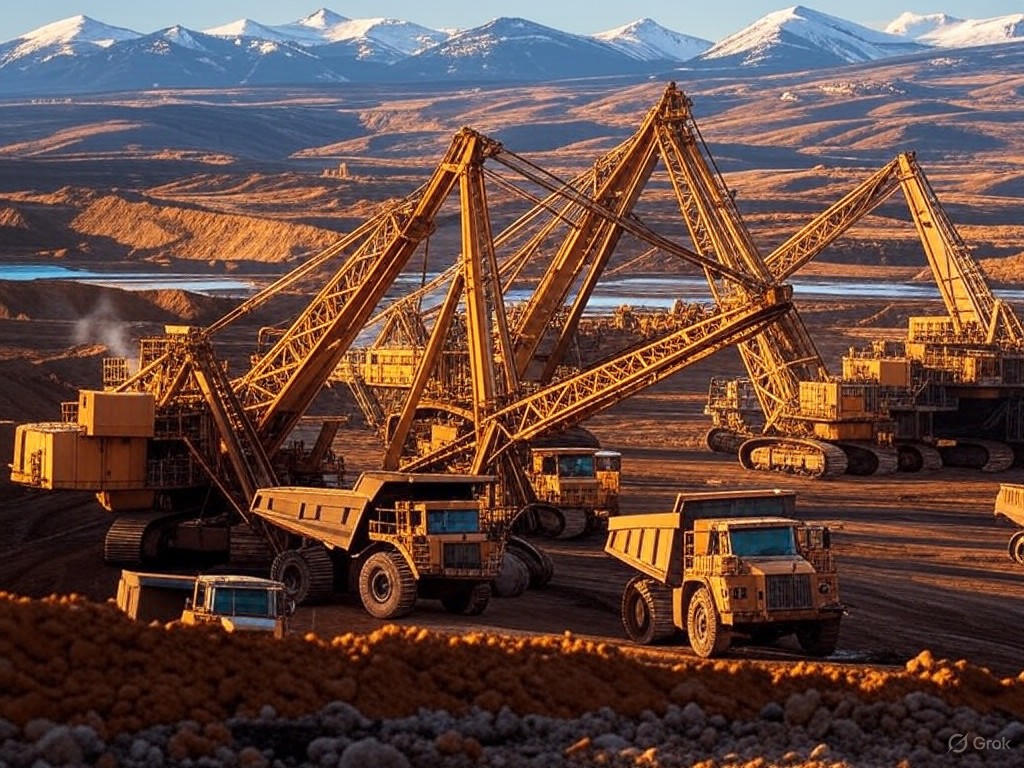Alberta-BC Pipeline Tensions: A Global Energy Dilemma
In the vast expanse of Canada's western provinces, where rugged landscapes meet the demands of modern energy needs, the longstanding dispute over pipelines between Alberta and British Columbia serves as a microcosm of a larger global dilemma. The Alberta pipeline, a lifeline for one of Canada's most resource-rich regions, has sparked heated debates over energy security versus environmental protection—a tension playing out not just in North America, but across continents from Europe to Asia. As Eliza Alcotte, I approach this issue with a clear-eyed perspective: one that values the free market's ability to foster innovation and stability, while urging a return to traditional principles of cooperation and prudent stewardship. This editorial calls for pragmatic dialogue and market-driven solutions to bridge divides, ensuring that economic vitality and environmental responsibility go hand in hand.
The Alberta-BC pipeline saga, centered on projects like the Trans Mountain Expansion, exemplifies how local disagreements can ripple into international concerns. Alberta, with its vast oil sands, relies on pipelines to transport energy resources to global markets, bolstering not only provincial economies but also national security. Yet, British Columbia's concerns about potential ecological risks, such as oil spills in sensitive coastal waters, highlight the broader challenge of balancing resource extraction with conservation. This conflict mirrors global tensions, such as those in the European Union, where nations grapple with energy dependencies amid geopolitical shifts, or in Asia, where rapid industrialization clashes with mounting environmental pressures. From a center-right viewpoint, these disputes underscore the pitfalls of excessive government intervention, which can stifle free-market dynamics and delay essential infrastructure. Instead, fostering voluntary agreements between provinces could harness private enterprise to address shared goals, promoting both energy reliability and sustainable practices without bureaucratic overreach.

This image captures the bustling activity at an Alberta oil sands extraction site, underscoring the province's role as an economic powerhouse driven by resource development.
Analyzing the Core Tensions: Energy Security and Environmental Priorities
At the heart of the Alberta-BC pipeline disputes lies a fundamental clash between immediate economic imperatives and long-term ecological safeguards. Alberta's energy sector, a cornerstone of Canada's economy, has faced repeated roadblocks from British Columbia's regulatory stance, particularly regarding pipeline expansions. This friction is not merely provincial; it reflects a global pattern where nations prioritize energy security to maintain economic sovereignty. For instance, Europe's reliance on diverse energy sources post-Russia's invasion of Ukraine has amplified the need for stable pipelines, much like Alberta's quest to access Pacific markets Wall Street Journal on global energy shifts. In this context, Alberta's pipeline represents a free-market solution: private investment in infrastructure that could create jobs, lower energy costs, and enhance trade, all while adhering to existing environmental standards set by industry best practices.
From a center-right lens, the emphasis should be on limited government involvement, allowing market forces to innovate rather than imposing top-down regulations that hinder progress. British Columbia's environmental priorities are valid—protecting pristine waterways aligns with traditional values of stewardship and community well-being—but these must be balanced against the broader economic fabric. Overly restrictive policies risk alienating provinces like Alberta, potentially leading to fragmented national policies that undermine Canada's competitive edge in global energy markets. Historical examples, such as the U.S. shale boom, demonstrate how deregulation and private initiative can achieve energy abundance without sacrificing environmental gains, as advancements in technology have reduced emissions per barrel Natural Resources Canada energy report. By contrast, prolonged disputes in Canada illustrate the costs of inaction: delayed projects mean lost revenues, higher consumer prices, and diminished geopolitical influence.
Yet, this analysis must acknowledge the environmental stakes. Pipelines carry inherent risks, from potential leaks to habitat disruption, which British Columbia has rightfully highlighted in its opposition. Globally, similar debates rage in places like Indonesia, where palm oil production for biofuels pits economic growth against deforestation. In Canada, the Alberta-BC impasse could be mitigated through market-based incentives, such as carbon pricing mechanisms that encourage cleaner technologies without mandating them. This approach honors traditional values of individual responsibility and local autonomy, steering clear of one-size-fits-all government mandates that often lead to inefficiency.

Protesters gather along a British Columbia roadway, symbolizing the passionate defense of environmental integrity amid energy development pressures.
Evidence and Implications: Lessons from Data and Global Parallels
Evidence from recent developments underscores the urgency of resolving these interprovincial conflicts. According to data from Canadian energy reports, Alberta's oil sands contribute significantly to national GDP, accounting for over 10% of exports in recent years, yet pipeline bottlenecks have cost the province billions in potential revenue Canadian Energy Centre analysis. This economic strain is exacerbated by global events, such as supply chain disruptions from the COVID-19 pandemic, which have highlighted the need for reliable domestic energy infrastructure. In British Columbia, studies show that while environmental risks are real—estimated spill probabilities remain low with modern safety protocols—the province's stance has sometimes delayed projects that could fund local conservation efforts Center for Climate and Energy Solutions policy brief.
Internationally, the Alberta-BC dispute parallels tensions in the Middle East and South America, where energy exporters face environmental scrutiny from trading partners. For example, the U.S. has navigated similar issues with the Keystone XL pipeline, where free-market advocates argued for its approval to bolster North American energy independence Oil & Gas Journal on pipeline politics. These cases reinforce a center-right principle: that voluntary cooperation, rather than coercive regulation, yields the best outcomes. In Canada, data from the National Energy Board indicates that enhanced private-sector collaboration could reduce project timelines by up to 30%, minimizing both economic losses and environmental uncertainties.
Moreover, traditional values of community and mutual respect offer a pathway forward. Provinces like Alberta and British Columbia share a common heritage of resilience and innovation; fostering dialogue through industry-led forums could lead to hybrid solutions, such as advanced leak-detection technologies or shared revenue models for environmental monitoring. This evidence points to a balanced approach: one where free markets drive efficiency, and limited government roles ensure fairness, avoiding the extremes of unchecked exploitation or paralyzing bureaucracy.
A Call for Cooperation: Charting a Pragmatic Path Forward
In conclusion, the Alberta-BC pipeline disputes are more than a regional quarrel—they are a mirror to global challenges, demanding a synthesis of energy security and environmental priorities. By embracing free-market principles, Canada can unlock economic potential while upholding traditional values of stewardship and unity. Governments should resist the temptation for heavy-handed intervention, instead empowering private stakeholders to negotiate and innovate. As we've seen in successful energy partnerships worldwide, cooperation breeds progress: Alberta's resources could fuel British Columbia's green initiatives, creating a model for sustainable development.
Ultimately, this moment calls for a renewed commitment to common sense and collaboration. Let us move beyond divisive rhetoric and toward a future where energy flows as freely as ideas, securing prosperity for all Canadians. Through thoughtful, market-oriented solutions, we can navigate these tensions, ensuring that our natural heritage and economic strength endure for generations to come.

This map outlines key interprovincial energy routes in Canada, illustrating the interconnected dependencies that demand cooperative strategies for both security and sustainability.

